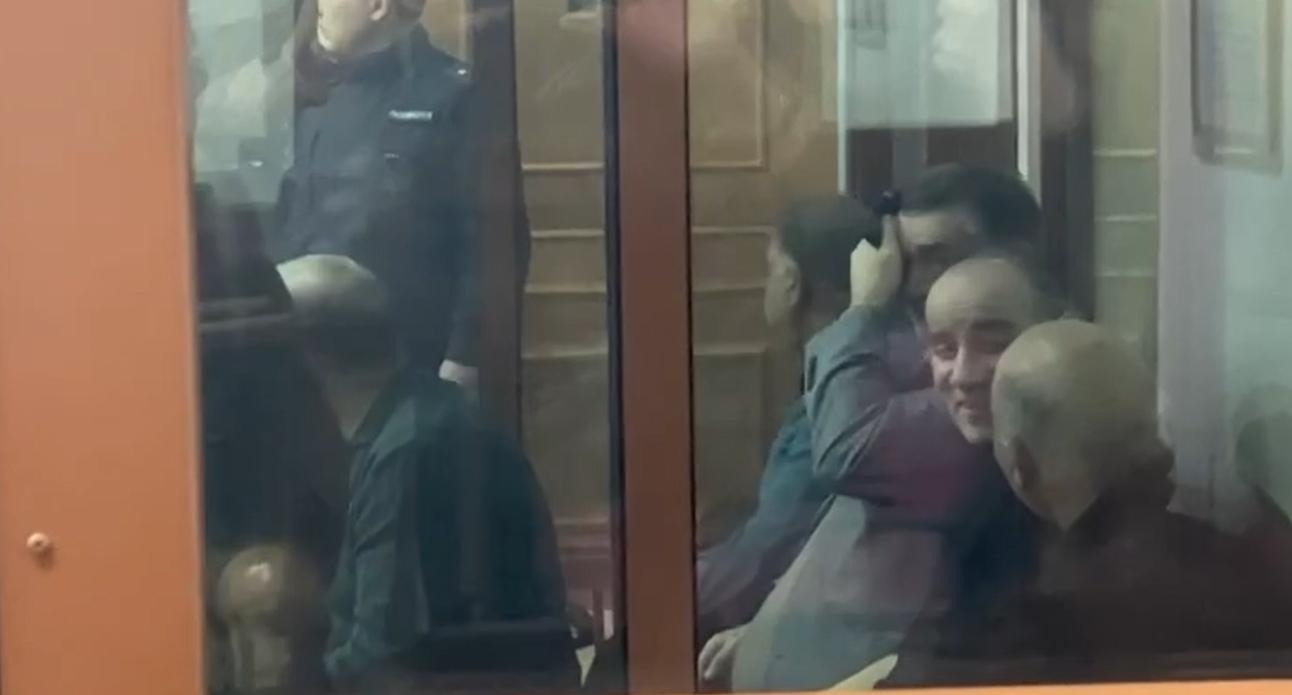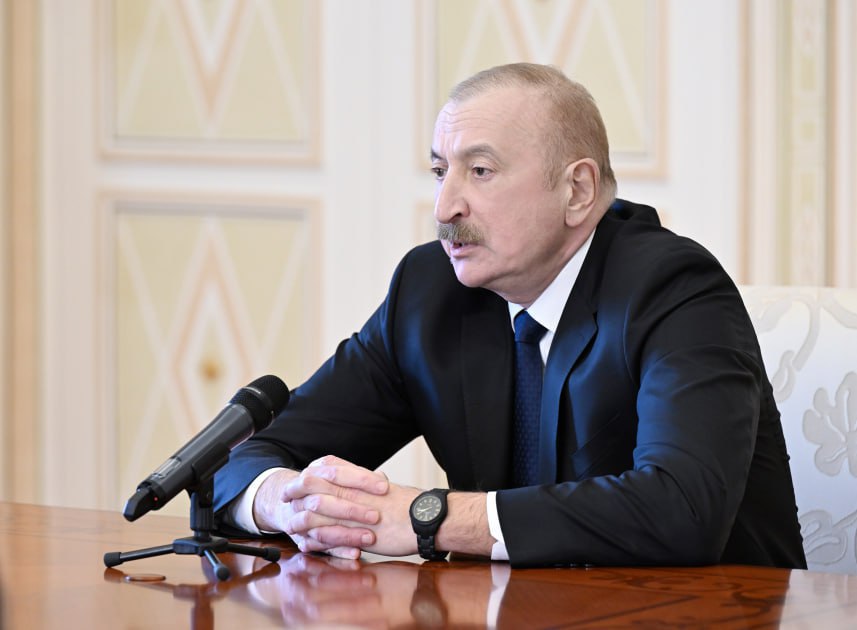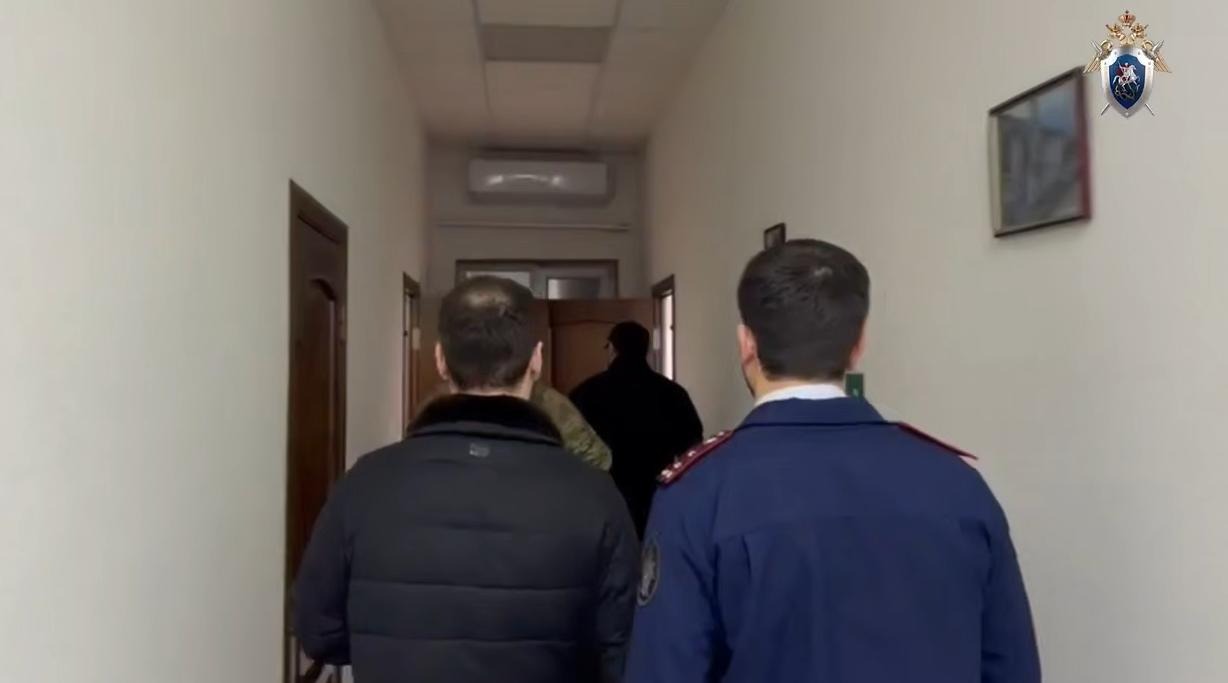The former head of the Azerbaijani diaspora in Yekaterinburg, Shahin Shikhlinsky, was sentenced to 22 years in a maximum-security prison colony. Six other Azerbaijani-born individuals received sentences ranging from 10 to 20 years.
On September 12, after two and a half years of trial, the Southern District Military Court in Rostov-on-Don issued a decision in the case of Dagestani journalist Abdulmumin Gadzhiev, programmer Kemal Tambiev and philanthropist Abubakar Rizvanov. All three were found guilty of participating in a terrorist organization, financing terrorism and organizing the activities of an extremist organization and were sentenced to terms of 17 to 18 years in a maximum security penal colony.
As reported by Novy DOSH, the defendants did not admit guilt. In June, the prosecutor's office requested 19 years in prison for them.
The verdict states that in 2009, Gadzhiev, Rizvanov and Tambiev united to provide financial support to illegal armed groups. They created charitable foundations in Russia, Turkey and Sweden, collected funds and sent some of them to illegal armed groups. Gadzhiev, being the editor of the religion department of the newspaper "Chernovik", "took upon himself the obligation to cover this supposedly charitable, selfless activity." Rizvanov "exercised control over financial flows." Tambiev created and administered groups on the Internet, and also collected funds "to bank accounts in electronic payment systems to ensure the activities of illegal armed groups." As the prosecution calculated, a total of 67.8 million rubles were transferred to the accounts of these funds, "of which at least 204,789 US dollars and 48,410 Turkish lira were transferred for the implementation of terrorist activities." In addition, the defendants took part in the activities of the banned international terrorist organization "Islamic State," the verdict states.
Speaking with his final words, Abdulmumin Gadzhiev said: "This case was a fake from beginning to end... The accusation against us of participating in terrorist organizations, the names of which we ultimately did not hear in court from a single witness and from a single piece of evidence, was a fake. The investigator chose these organizations only because they were the first on the list on the FSB website. The accusation that the purpose of my work for the Chernovik newspaper was to promote the Ansar foundation turned out to be fake. In ten years of this work, this foundation was mentioned in only one publication in connection with the relevant news item. The accusation against Kemal Tambiyev of founding the Aman foundation turned out to be fake, the real founders of which, as we found out in court, had never heard of it. My alleged transfer of 16 thousand rubles to ISIS turned out to be fake, which, as it turned out, was an ordinary purchase of plane tickets...
The testimony of almost all the prosecution witnesses, who one after another went over to our side, was fake, as a result of which I did not even have to invite witnesses in my defense.
The accusation that I called for terrorist organizations on the pages of the Chernovik newspaper turned out to be fake. Three expert examinations did not find even a hint of terrorism in them."
Gadzhiev suggested that the criminal case was initiated to close the Chernovik newspaper and "shut up independent media in the republic." The paper edition was indeed liquidated, but, according to the journalist, the audience of the Chernovik Telegram channel is five times larger than the print version of the newspaper.
The defendants' lawyers appealed the verdict and expressed hope that the appellate court would take into account all the inconsistencies in the charges. "I don't know whether to laugh or cry, this is just some kind of wildness," Gadzhiev's defense attorney Arsen Shabanov said about the verdict.
Another lawyer, Shamil Magomedov, noted that he had never seen so many clumsy fabrications in one case.
The case was considered by a panel of judges consisting of Roman Saprunov, Maxim Nikitin and Rizvan Zubairov. At the same time, the latter insisted on the full acquittal of the defendants. His "special opinion" became a real sensation for all those who follow the state of the judicial system in Russia. "A special opinion of a judge" is a criminal procedural act in which a judge, being a member of the panel, expresses his disagreement with the opinion of the majority. In this document, Rizvan Zubairov criticized all the evidence of the prosecution, which became the basis for the verdict. Thus, he drew attention to the fact that the court considered the transfer of 16 thousand rubles made by Gadzhiev as evidence of support for terrorism, while the defense presented a survey of the head of the travel agency who received this money, as well as a copy of the airline tickets that were purchased with it.
Zubairov also believes that the court ignored the results of several linguistic examinations that found no signs of extremism in Gadzhiev's articles.
The text of Judge Zubairov's "special opinion" is a legally verified refutation of the verdict and can be used in its pure form in an appeal, the defense believes.
At the same time, the chairman of the judicial panel, Roman Saprunov, was included in the EU sanctions list in June of this year in connection with the sentences of Crimean Tatar activists. The EU considered these sentences to be politically motivated.
Meanwhile, in Makhachkala, Abdulmumin Gadzhiev's colleagues continue to hold solitary pickets demanding that his persecution be stopped.



